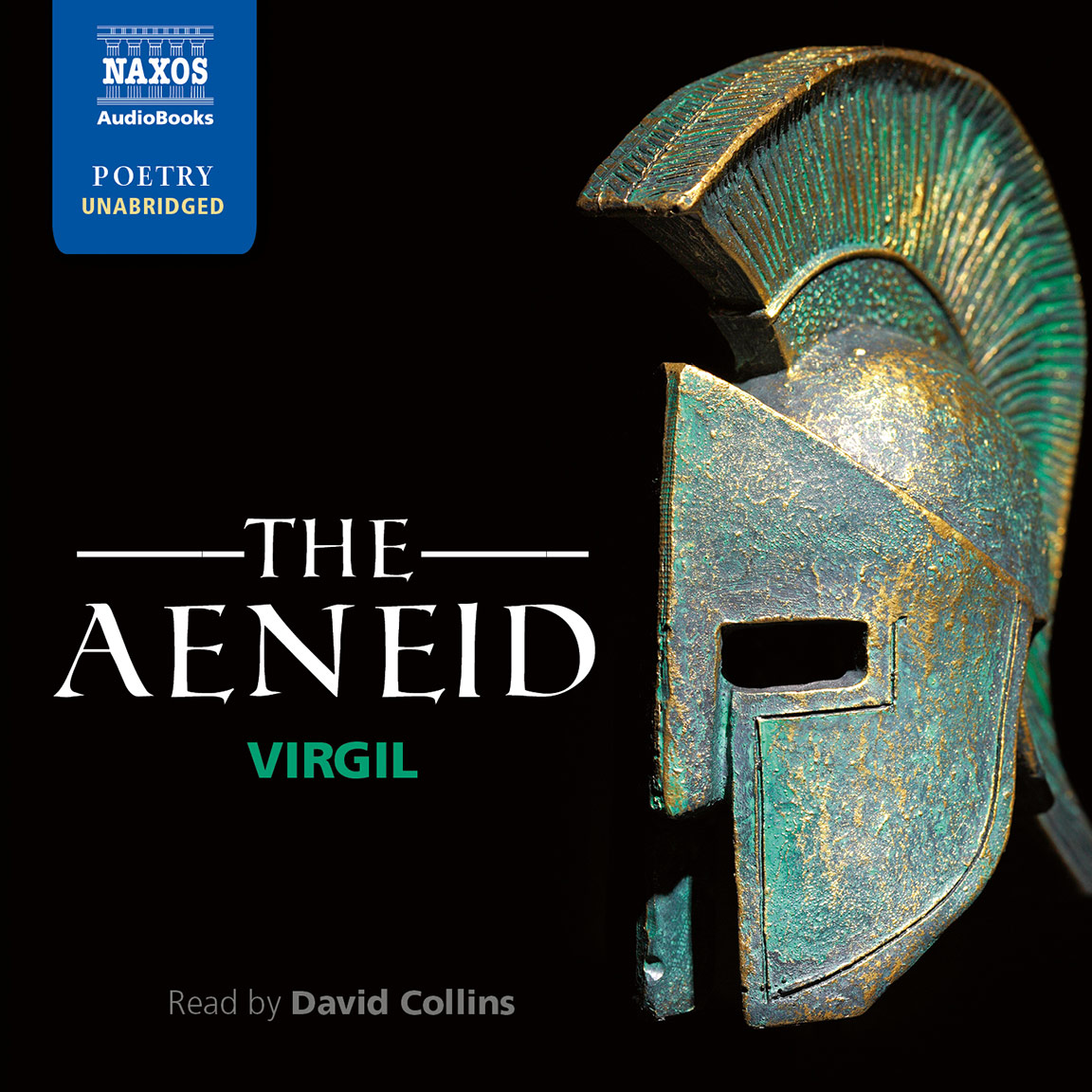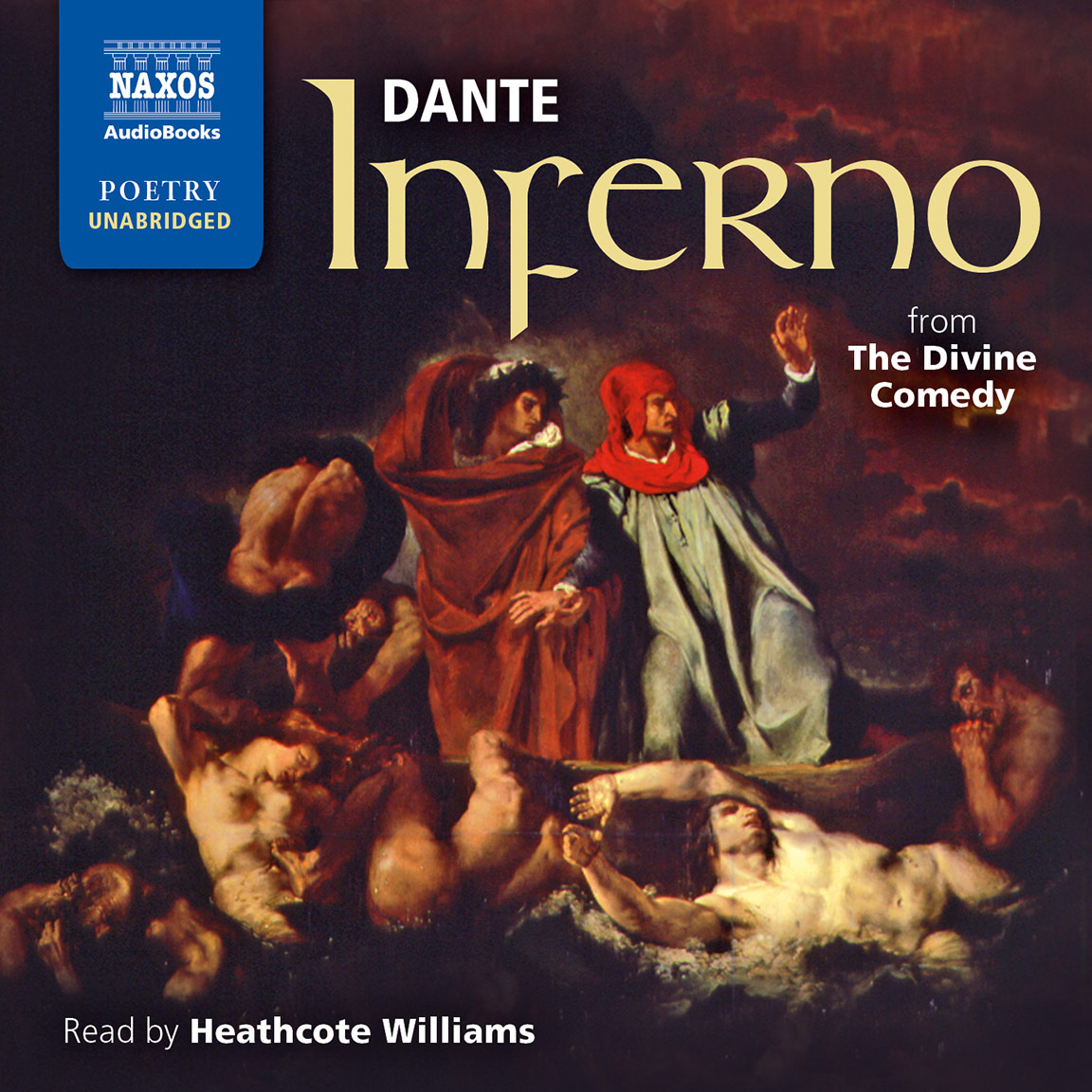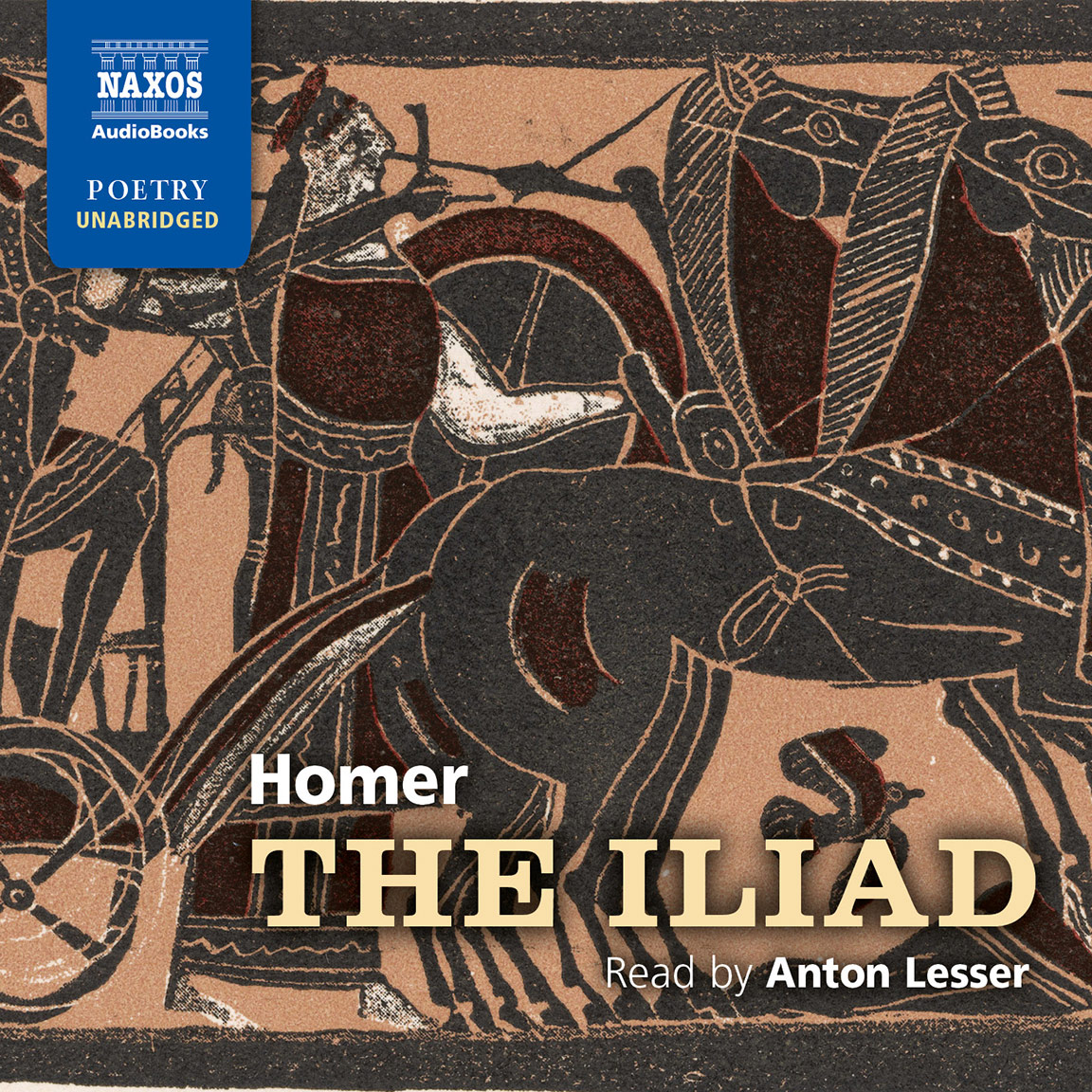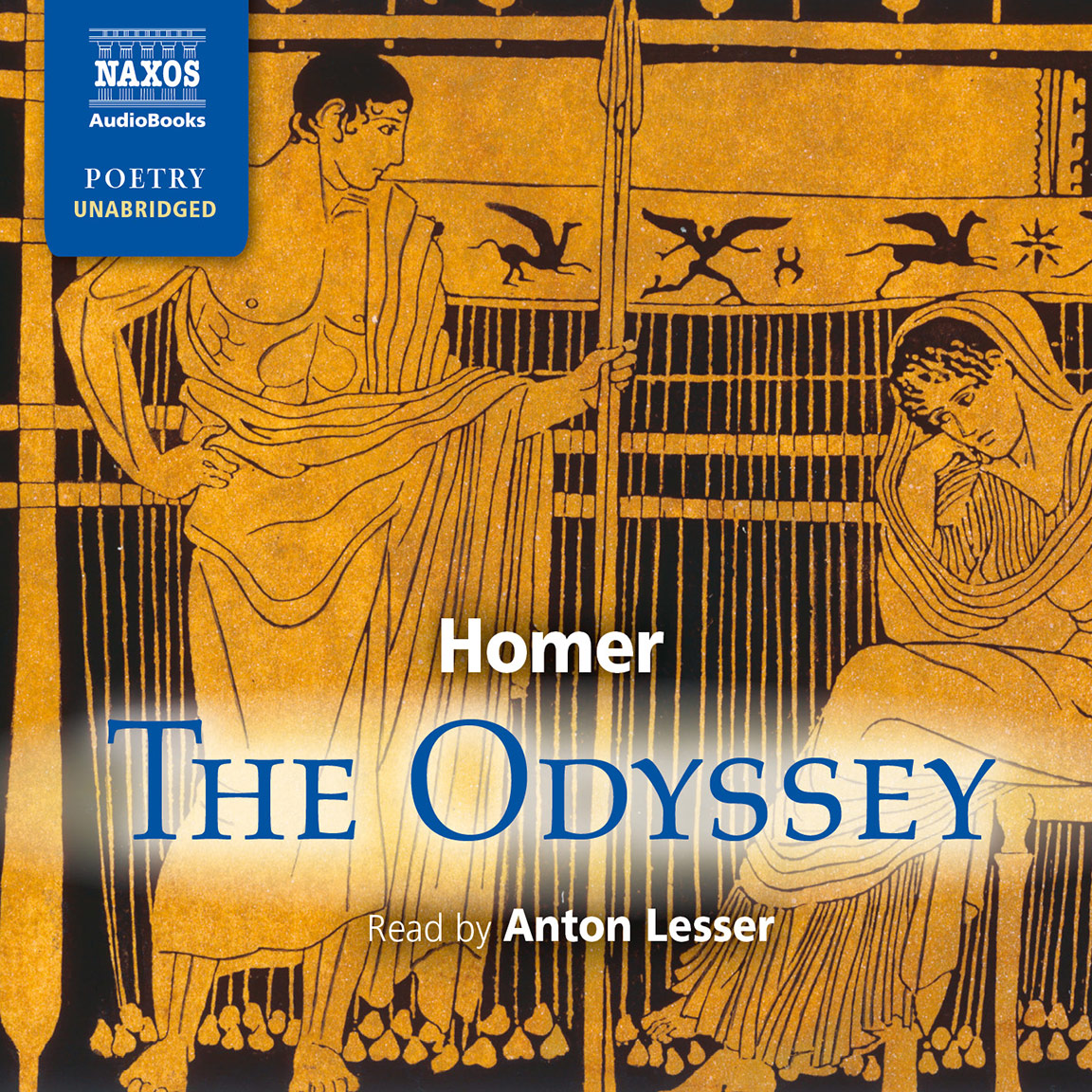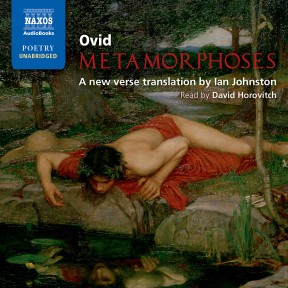
Audio Sample
Ovid
Metamorphoses
Read by David Horovitch
unabridged
The Metamorphoses, by Publius Ovidius Naso (43 BC–AD 17) has, over the centuries, been the most popular and influential work from our classical tradition. This extraordinary collection of some 250 Greek and Roman myths and folk tales has always been a popular favourite and has decisively shaped western art and literature from the moment it was completed in AD 8. The stories are particularly vivid when read by David Horovitch in this new lively verse translation by Ian Johnston.
-
14 CDs
Running Time: 17 h 32 m
More product details
ISBN: 978-1-84379-631-2 Digital ISBN: 978-1-84379-632-9 Cat. no.: NA0107 Download size: 256 MB Translated by: Ian Johnston BISAC: POE008000 Released: July 2012 -
Listen to this title at Audible.com↗Listen to this title at the Naxos Spoken Word Library↗
Due to copyright, this title is not currently available in your region.
You May Also Enjoy
Reviews
David Horovitch’s richly enunciated delivery is a superb vehicle for the classical style, with its elevated diction and its elaborate rhetorical and poetic figures. Ovid poses a special challenge, and only a reader with expert pacing, matched with a sensitivity to nuances of tone and language, could deliver this text to its full impact. This Ovid is a delight. Horovitch expresses both Ovid’s elegance and his lightness of touch. A word like ‘nectar’ drips with honeyed sweetness, and even ‘water’ sounds multisyllabic. Ovid’s tales of change and transformation‚ ‘Actaeon into a stag, Zeus into a bull, the whole of reality in a constant state of metamorphosis’‚ offer as enduring a vision as any in literature. Horovitch has a great voice for the classics.
D.A.W., AudioFile
Ian Johnston’s new translation of the Metamorphoses is accessible, wide-reaching, and fun, even to those for whom Classical civilisation does not cause flutters of excitement (unlike this reviewer!). This beautiful – if long – poem, finished by the Roman poet Ovid in AD 8, covers hundreds of Roman and Greek myths, from the creation of the universe to the tragic story of Icarus (the boy who learned to fly with man-made wings, but who unfortunately flew too close to the sun). Just like human history, the Metamorphoses is chock-full of tragedy and violence, but with the added bonus of the supernatural, so the stories are endlessly fascinating yet also universal that many will recognise due to the various adaptations and retellings over the years. Through these myths, Ovid recognises that our faults and weaknesses, and our inability to escape temptation, particularly of the amorous kind, can be our undoing. Case in point is beautiful, dead Eurydice, who is stuck being dead because she cannot help but look back at Orpheus when he comes to rescue her from the underworld. And the gods of these tales share so many unfortunate human flaws, but they possess far more power than mere mortals. The result: victims of rape are often transformed into flora or fauna, while the rapist (Apollo, usually) just moves on to the next innocent maiden. And there is no shortage of gore and revenge. There is Philomela, an Athenian princess, raped by her brother-in-law and rendered mute when he cuts out her tongue. She uses weaving to communicate the crime to her sister, Procne, and Procne exacts revenge in an unorthodox manner, killing her husband’s (and her own) child, cooking his body, and feeding it to her husband. Not gross enough? Medea is also featured here, providing her cautionary tale against infidelity. And because Ovid was adapting these traditional stories to a ‘modern’ era, there is high praise and a description of the deification of the assassinated Julius Caesar, dead for just fifty years when Ovid completed this work. The Metamorphoses is a winding, escapist interlude into a highly imaginative, sometimes disturbing, mythology that continues to captivate attention; like Narcissus, we see ourselves in these tales and cannot help but be fascinated. Further, Ian Johnston’s translation flows beautifully, without a hiccup.
David Horovitch’s lyrical, polished voice makes listening to the many lines of the Metamorphoses that much more enjoyable. He revels in the bucolic scenes but turns on his contempt for the violent or horrifying moments. Horovitch enhances this telling, and invokes a togaed poet entrancing the multitudes.
Joanna Theiss, Sound Commentary
Metamorphoses – The title of Ovid’s most famous work, ‘Metamorphoses’, means ‘changes of shapes’. He tells the reader at the very beginning, ‘My purpose is to tell of bodies which have been transformed into shapes of different kinds’. Using a new translation of the work by Ian Johnston, Naxos AudioBooks has issued a 14 CD complete reading that is quite frankly stunning. The reader is British actor David Horovitch, who is best known as the sour Inspector Slack in the older Miss Marple series with Joan Hickson.
It must be pointed out that Ovid was in deep trouble with Augustus, because many of Ovid’s books displeased his Emperor who declared a family values campaign in Rome. So Ovid, knowing that Roman emperors believed they would be turned into stars (Julius Caesar) or gods (Caligula declared himself divine while still alive), patterned his newest book in such a way that man-into-god transformations seemed perfectly natural.
To avoid monotony, Ovid is careful to vary the tone and length of one story after another. Characters in one story actually tell the story of another metamorphosis just before experiencing their own. He also treats his tales very dramatically, inventing dialogue so the myth reads like a drama. I was particularly impressed with the speech the God of the Sun, Phoebus, gives to his son Phaethon. Having promised him anything he wanted, Phoebus immediately regretted his unbreakable promise when Phaethon wanted to drive the Golden Chariot for a day.
Ovid tells one rattling good yarn after another. While following without a written text, the listener might lose his way as to what character is now playing the lead, so to speak; but Horovitch’s acting skills keep in synch with Ovid’s moods and pacing, and hearing this Naxos set is quite a riveting experience.
The total playing time is 17:32 hours. The tracking list must be downloaded from a website given on the back of the jewel case. Mine came to 11 pages.
Frank Behrens, Battleboro Reformer
Booklet Notes
The Metamorphoses by Publius Ovidius Naso has, over the centuries, been one of the most accessible and influential works from our classical past. This extraordinary collection of Greek and Roman myths and folk tales has always been a popular favourite and has decisively shaped Western art and literature from the moment it was completed in AD 8.
Ovid’s stories, about 250 in all, begin with the creation of the world and end with a tribute to Augustus Caesar, the poet’s contemporary, moving from famous early myths to fabulous divine or semi-divine heroic characters and well known figures from traditional tales, then to the great historical saga of Troy, the wanderings of Aeneas and Ulysses, up to the recent history of Rome. Most of the stories involve miraculous and dramatically arresting transformations, in which a living being is changed into something else or is physically altered in some way, often as a result of intense suffering, or in which inanimate objects become living creatures.
The work has always been one of our principal sources of classical stories and hence an invaluable resource for later poets, painters, playwrights and storytellers, from countless medieval and renaissance artists (including Shakespeare) to modern Broadway producers. But the popularity and influence of the poem rest on a great deal more than the outlines of the tales. For Ovid has a brilliant style, which transforms what might otherwise be a mere catalogue of stories into a seamless, forward-driving, and endlessly diverting totality.
Ovid is famous for his skill in creating transitions from one story to the next, often by having a character in one story move onto something new in the next, or by following someone’s reaction to a story. He will frequently arrange stories in groups as part of an ongoing conversation or contest, or a series of stories within a story. As a result, the poem never flags or develops a stop-start rhythm but is always urging the reader or listener forward in one continuous narrative.
The work has always
been one of our
principal sources
of classical stories
Ovid also likes to anchor his stories in the passionate emotions of the gods or of human individuals, so that the actions arise out of familiar and powerful feelings. The poem is justly famous for its set speeches, especially those of a young girl in love for the first time and caught up in passions which she knows she should resist but cannot, invariably with disastrous results. The psychological complexities many of the characters reveal in their self-examinations are fascinating. The formal speeches, too, like those between Ajax and Ulysses and the long speech of Pythagoras, or Medea’s famous incantation, bring these characters to life and have helped to define them for hundreds of years. This intensely dramatic quality allows us to feel the stories much more immediately, so that we can make up our own minds, rather than having to listen to the judgment of the narrator. The speeches also bring out evocatively the harsh cruelty of many of the transformations, which are usually the final stage of intense suffering.
Ovid is famous, too, for his visual imagination, which ranges from cosily erotic and often humorous details, to graphic depictions of natural disasters, like storms at sea, catastrophic floods or plagues, to an almost grotesque treatment of battle wounds and mutilations. Given the imaginative quality of these images, it is no accident that the poem has had such a major influence on the history of Western art.
But the most famous, complex, and contested aspect of Ovid’s poem is the narrator’s attitude to his own stories. The speaker (who clearly identifies himself as the poet) repeatedly calls attention to the absurdity of the fictions he is creating and mocks the credulity of people who believe them. In many places Ovid pushes the descriptive details to such an extreme that one gets a sense he may be satirising his own stories and also earlier works which have dealt with similar events, simultaneously paying a tribute to a famous predecessor and gently satirising him. It is as if he is inviting us to enjoy the poem but not to take it all that seriously.
Now, this is a risky business. After all, if the narrator is constantly threatening to pull the carpet out from under his own fiction, there is a real danger that the reader might simply lose interest or get confused. But Ovid negotiates this difficulty with consummate skill: he delights us with his stories and, at the same time, constantly mocks the notion, directly and indirectly, that they offer a significant insight into anything. The technique has the effect of driving something of a wedge between the style and the content and invites us to admire the amazing skill with which the poet can create such a remarkable work, so much so that, in a very real sense, the poet’s skill, his extraordinary verbal ‘wit’, is one of the central attractions of the poem, constantly on display.
Unlike the works of the great epic poets he is drawing on, Ovid’s poem does not invite us to treat the stories, individually or collectively, as presenting anything we might consider a vision of life. They matter as stories, for they provide him with an opportunity to display his poetical skill, but they do not put pressure on us to think about anything beyond this literary concern. That, indeed, may be one key to his popularity, for Ovid’s attitude to his myths neutralises any threat they might pose to a rival system of belief. Some of those who demand that a poet should strive for a high moral seriousness have deplored this aspect of Ovid’s style, citing his inappropriately sly tone or the pleasure he takes in rhetorical excess. Others, more sensitive to the delights of poetry, have always considered Ovid a poet’s poet, someone we read in order to surrender ourselves to the sheer pleasures of delightful fiction for its own sake. That, as Ovid seems to have sensed, is the key to his enduring popularity: in a world of constant change, his closing lines proclaim, emperors may come and go, but his brilliant work will always remain.
Notes by Ian Johnston
